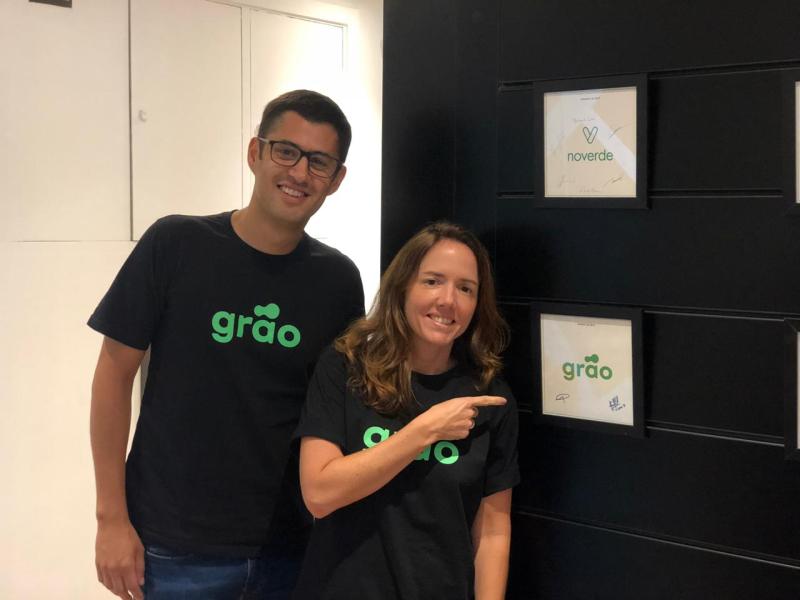RIO DE JANEIRO, BRAZIL – The startup that works with micro-investment will offer credit to customers who start saving and undertake a journey of conscious use of financial services.
Financial education is one of the areas that demand most attention from fintechs. It is not by chance. It is usually the most efficient way to begin a sustainable financial life, in which debts are replaced by the habit of reaching the end of the month at zero and, subsequently, to start investing. With this in mind, fintech Grão has just entered into a partnership with Cacau Crédito to offer microcredit to its clients.

The microcredit will be offered at interest rates below the market based on the customer’s profile, so that they may anticipate the achievement of goals for which they save money: traveling, buying a motorcycle or car, or making a down payment on their own home, are among the reasons most cited by the fintech’s customers.
“We will anticipate the client’s goal, their dream. Rather than setting up a microcredit operation within Grão, we have established a partnership with Cacau. That is, our clients start saving money and, according to their behavior, they can access microcredit,” says Monica Saccarelli, Grão’s founder and CEO.
Cacau Crédito, led by Frederico Meinberg, is in charge of risk analysis and operation funding. Meinberg and Saccarelli were co-founders of broker Rico, sold to XP in 2016.
These will be loans of up to R$5,000 (US$945), which can be paid in up to 24 monthly installments. The rates are still being determined and will depend on the client’s profile.
Based on data such as clients’ behavior and history, Grão will calculate their credit score and then offer access to microcredit in more attractive conditions than those offered by other financial institutions.
These are data collected from the digital account launched at the beginning of the year, in a base that reached 10,000 customers, who use the debit card, pay bills, recharge and are encouraged to micro-invest using triggers. The analysis is conducted with machine learning, in a solution used after Grão was selected for Google’s acceleration program.
Grão’s total client base amounts to 50,000, but Saccarelli points out that only those who are able to follow a sort of financial behavioral path have access to microcredit.
One of the theories to be proven over time is that customers who have had access to financial education are more likely to pay their loan bills on time than those who have not followed this path.
With the digital account and now the granting of microcredit, in addition to micro-investment, Grão is on its way to becoming a financial services platform aimed at the public that until the recently was unbanked.
“It was a decision [to offer microcredit] with the user in mind. If we just kept the money saved, we wouldn’t solve their problems,” he says.
Saccarelli says that the pandemic boosted business growth, but in different ways. “We noticed a change in our customers. At the start of the pandemic, those who were employed stayed home. And, for the first time, they were able to save money. But over time, many lost income or employment.”
Grão was born in 2019, founded by Saccarelli as the first national fintech dedicated to the so-called micro-investment. From R$1 it is possible to invest in government bonds. The goal is to encourage the habit of saving in low amounts, something that is the only form of saving for millions of Brazilians.
One of the first programs was the 21-Day Challenge, in which each day customers would save an additional R$1, starting with R$1 on the first day. At the end of the challenge, these customers would have managed to save R$231.
The micro-investment concept involves investing the money saved in Direct Treasury bonds, more specifically in the SELIC Treasury (also known as LFTs), with daily liquidity in mind. But once customers manage to save money, the next step is to encourage them to keep their reserves for a longer period of time.
In the future, the plan is to expand the range of financial products offered, which may include CDBs and funds.

